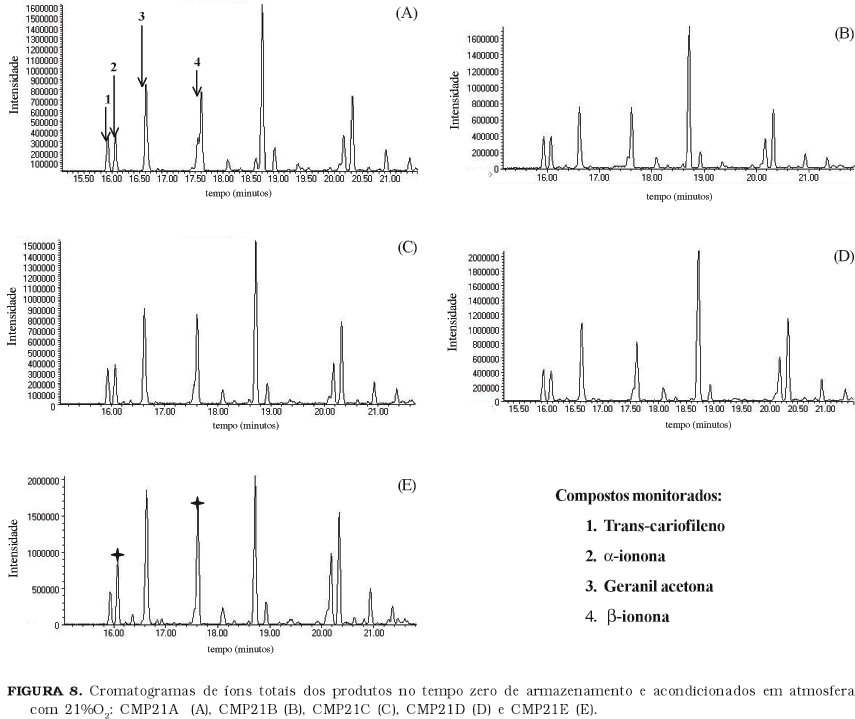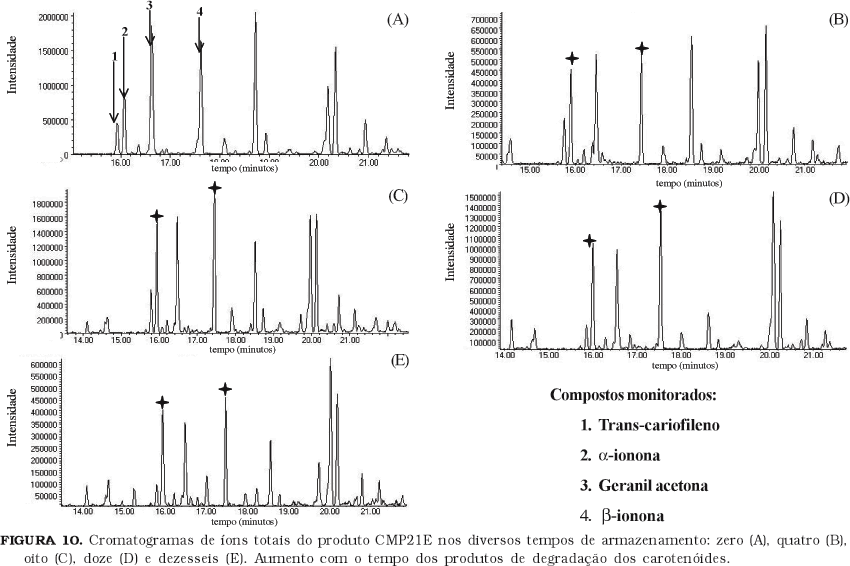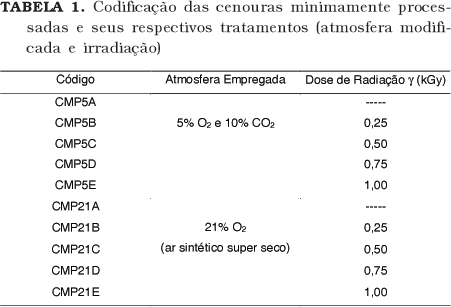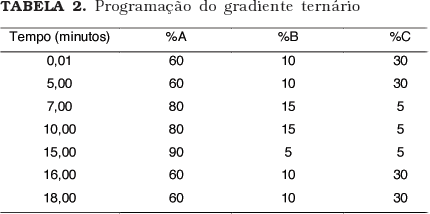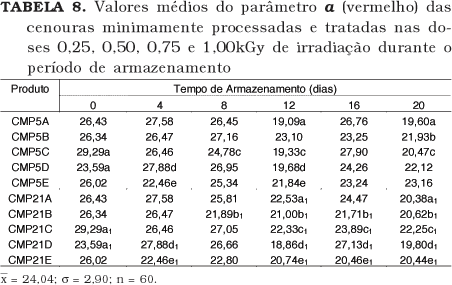This study aims was to evaluate the effect of low doses of gamma radiation on the total carotenoids, alpha and beta-carotene content in minimally processed carrots, during the shelflife. Carrots are the mains vegetable source of carotenoids provitamin A (alpha and beta-carotene). According to the Family Budget Survey (FBS) carried out in the Brazilian Southeast, within the roots and tubers group, carrots are widely consumed. The carotenoid stability varies largely during the stages of processing and storage, depending upon structure, temperature, oxygen availability, light exposure, humidity content, water activity and acid, metal anti-oxidant and pro-oxidant presence. The minimally processed carrots in this experiment were manually peeled, rinsed, cutted into diskis, packaged under 5% O2 / 10% CO2 and 21% O2 (sintetic air), gamma ionizing radiation treatments was carried out with a 137Cs source, of 0,25, 0,50, 0,75 and 1,0kGy doses, and shelf-stored at 5°C for 24 days. Total carotenoids quantification was by 449nm spectrophotometer. Determination of a and beta-carotenes was made by High Performance Liquid Chromatography (HPLC). The different treatments and control group were, too, evaluated by analysing of colour and volatiles, by gas chromatography/mass spectroscopy with solid phase microextration (CG-MS/SPME), for study the significant carotenoids losses during the process.
carrot; irradiation; carotenoids; colour and volatiles








